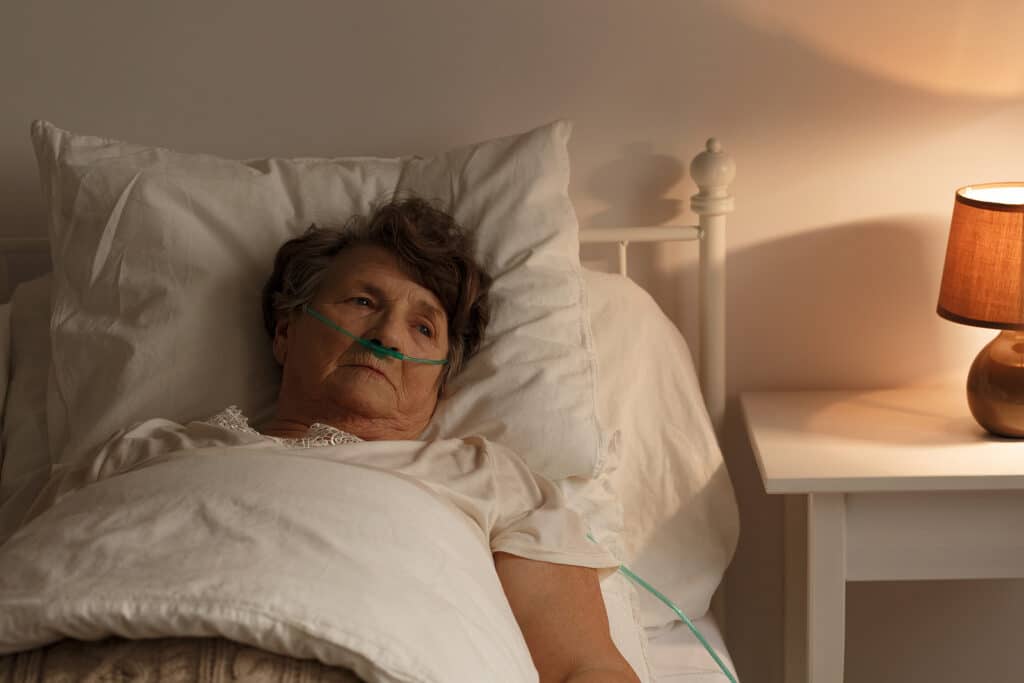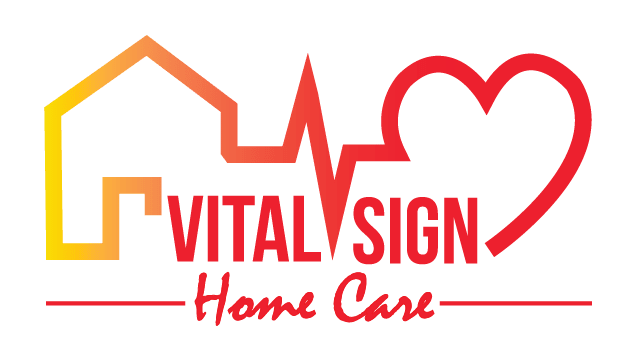Vital Sign Home Care in Maryland. 24-hour, overnight in home care.
What Are the Levels of Senior Care?
In general, the levels of senior care include:
- In-home care
- Assisted living
- Respite care
- Memory care
- Nursing home
What Is 24-Hour Care at Home?
24-hour care can be handled on an hourly or a live-in basis.
With hourly 24-hour home care, 2 or more caregivers take shifts every day to care for a person around the clock. Typically, 2 caregivers will each work 12-hour shifts, although you may have 3 caregivers who each work 8-hour shifts.
Live-in care is when caregivers work 24-hour shifts and sleep in the patient’s home for a required number of hours each night. You will usually have one caregiver work for 4-5 days a week and another who works the other 2-3 days per week.
What Does a 24-Hour Caregiver Do?
24-hour caregivers do a variety of things to help an elderly person or other individuals who need care. Tasks may include:
- Personal care such as eating, toileting, bathing, and dressing.
- Household care such as laundry, cleaning, cooking, and shopping.
- Emotional care through conversations, activities, and companionship.
While people who require care 24-hours a day may need help with a variety of physical tasks, companionship is still a critical part of 24-hour in-home care. According to the Centers for Disease Control and Prevention [1]:
“Loneliness and social isolation in older adults are serious public health risks affecting a significant number of people in the United States and putting them at risk for dementia and other serious medical conditions…Social isolation significantly increased a person’s risk of premature death from all causes.”
Vital Sign Home Care provides exceptional overnight senior home care in Anne Arundel County, Baltimore City, Baltimore County, Carroll County, Harford County, Howard County Maryland.

What Is the Difference Between Hourly Home Care and Live-In Home Care?
While hourly caregivers and live-in caregivers both theoretically provide 24-hour in-home care, live-in caregivers are required to have time to sleep overnight and may also be required to have breaks during the day. Hourly caregivers work shorter shifts, so more caregivers are required to cover 24 hours, but each caregiver will be awake the entire time.
"If your loved one wakes up frequently throughout the night to use the bathroom or becomes confused or agitated at night due to dementia, hourly home care is the better option since live-in caregivers are required to sleep at night."
Do Overnight Caregivers Sleep?
Can Hourly Home Care Also Be 24-Hour Home Care?
You have questions and we have answers, contact us today and one of our Vital Sign Home Care staff members will contact you shortly.
How Do You Know When an Aging Parent Needs 24-Hour Care?

Whether you’ve been your parent’s primary caregiver for a while and need a little extra help or you’re starting to feel like daytime assistance is no longer enough, 24-hour care may be a good option. Here are some ways to determine when your parent or other loved one needs 24-hour care.
Sundowning Occurs
“Sundowning can continue into the night, making it hard for people with Alzheimer’s to fall asleep and stay in bed. As a result, they and their caregivers may have trouble getting enough sleep and functioning well during the day.”
Physical Care Requirements Change
Whether it’s due to natural aging or a medical condition, a senior’s physical care requirements might change over time. With reduced mobility, an elderly person may struggle to get to the bathroom safely at night, brush their teeth before bed, or change into and out of their pajamas.
When daytime care is no longer enough to meet your parent’s daily needs, 24-hour home care might be the perfect solution.
Additional Safety Concerns Come Up
How Much Does 24-Hour Home Care Cost?
Does Medicare Pay for 24-Hour Home Care?
How to Choose the Right 24-Hour Home Care Agency
While selecting the right 24-hour at-home care agency might seem daunting, these questions may help you choose [5]:
- What procedures are in place in case of an emergency?
- How are problems addressed and resolved?
- When can services begin?
- How does the agency handle expenses and billing?
- Does the agency provide any financial assistance if needed, such as a payment plan?
- Do the agency’s employees seem helpful and friendly?
- How does the agency monitor and train caregivers?
- What type of employee screening does the agency do?
- Is the agency licensed by the state?
We can provide reliable 24-hour home care matched to your needs. Contact us today.
We love hearing what others say about our medical and non-medical home care services. View our testimonials and find out why your family should use our services.
Our person-centered care process allows our RN coordinators to work closely with our admissions coordinators to select caregivers based on the needs and interests of the client and family. Get Started today!
References
- Centers for Disease Control and Prevention, Loneliness and Social Isolation Linked to Serious Health Conditions, https://www.cdc.gov/aging/publications/features/lonely-older-adults.html
- National Institute on Aging, Tips for Coping with Sundowning, https://www.nia.nih.gov/health/tips-coping-sundowning
- Genworth, Cost of Care Survey, https://www.genworth.com/aging-and-you/finances/cost-of-care.html
- Medicare, Home Health Services, https://www.medicare.gov/coverage/home-health-services
- Mayo Clinic, Home Care Services: Questions to Ask, https://www.mayoclinic.org/healthy-lifestyle/healthy-aging/in-depth/home-care-services/art-20044609
